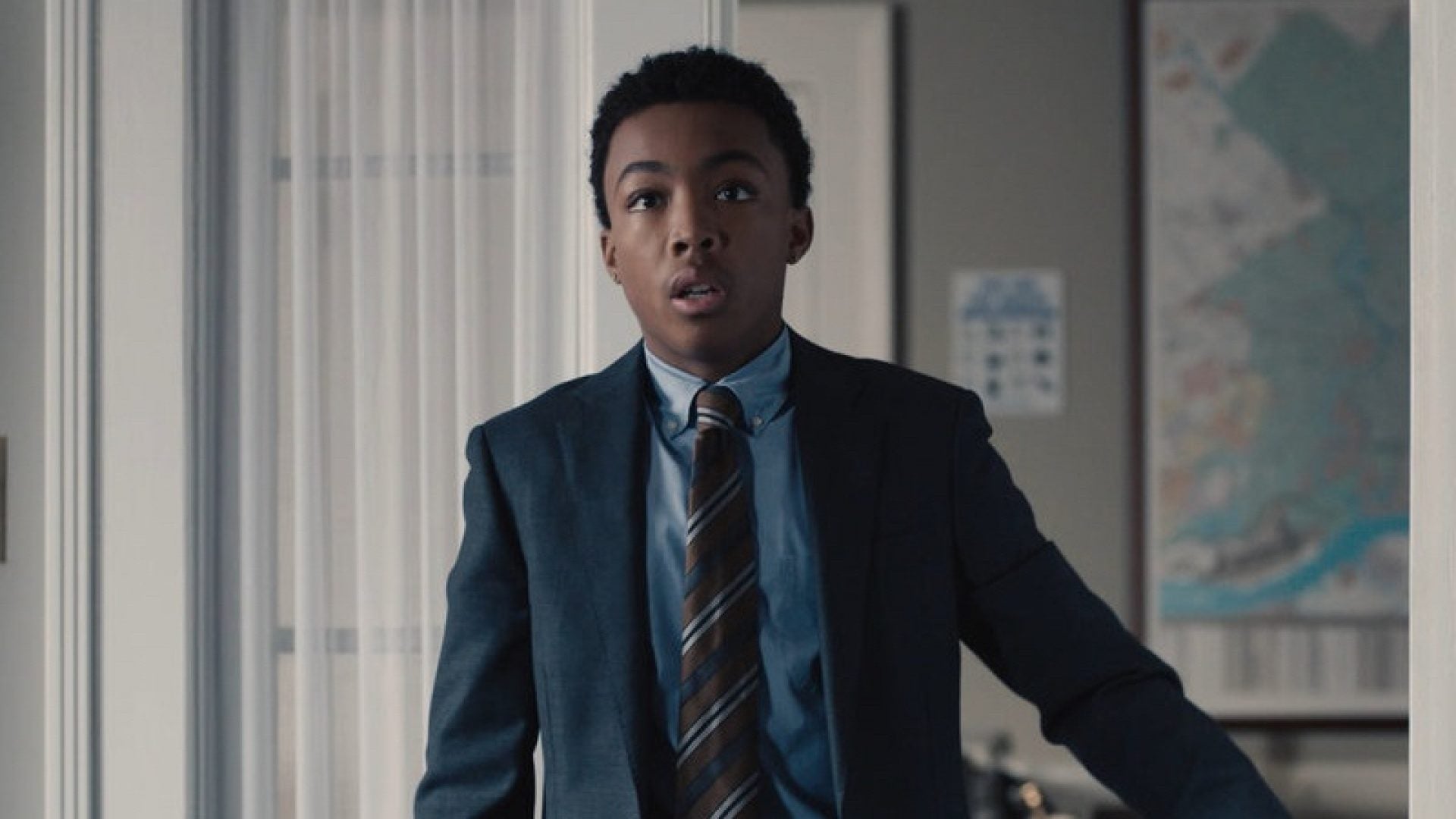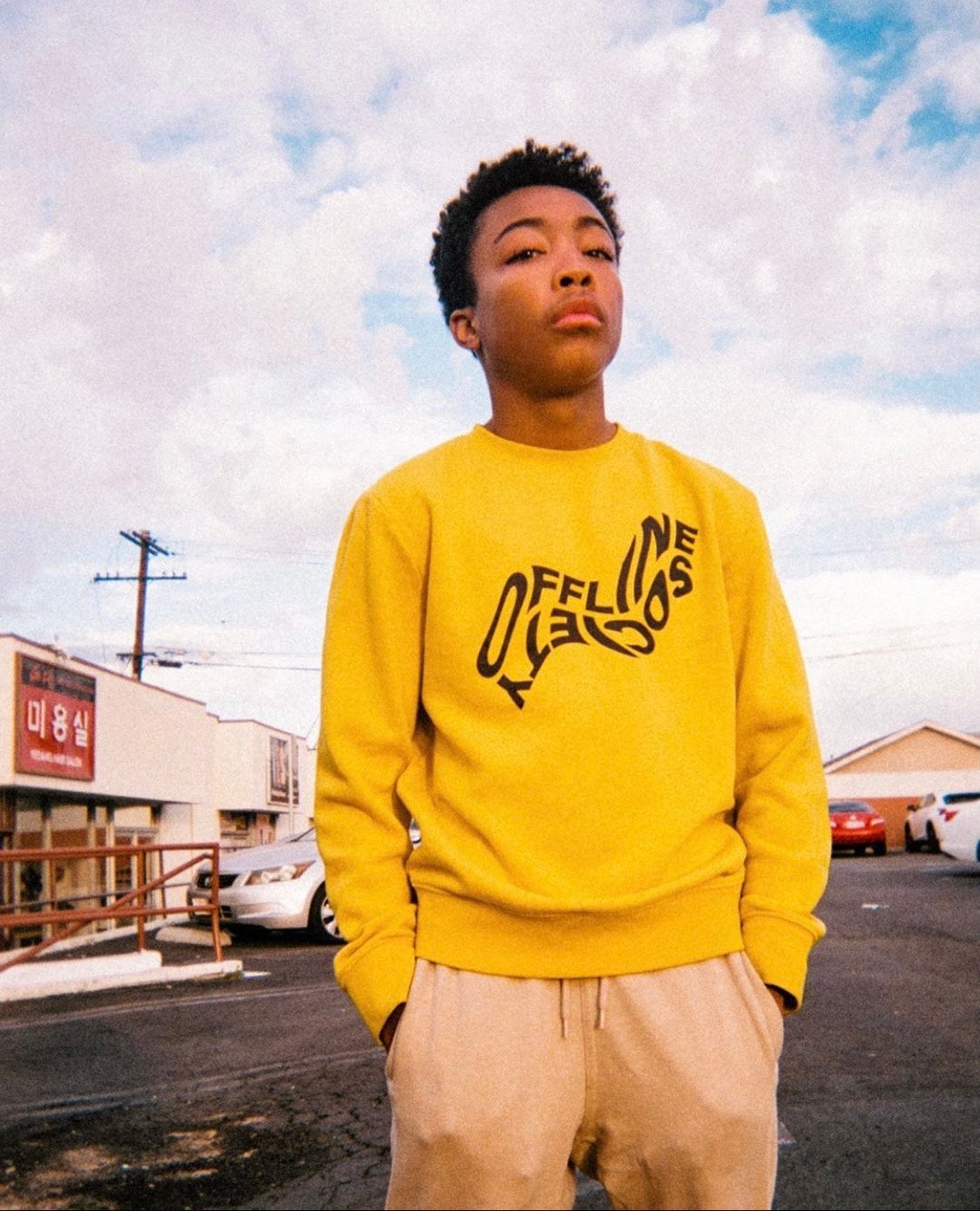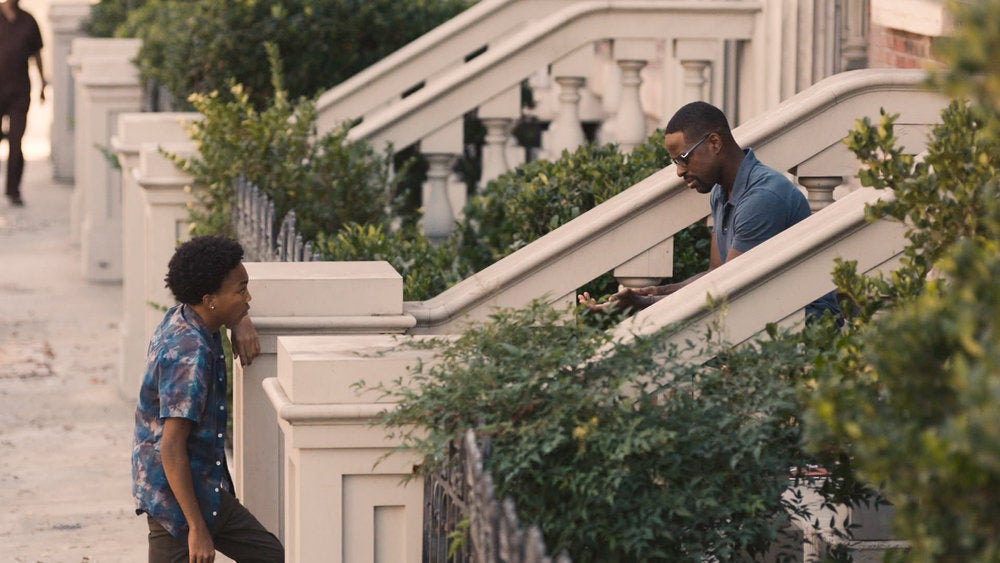
Both as an actor and as a young Black man, Asante Blackk just wants to be seen. And his visibility has been turned up since his Emmy-nominated role in Ava DuVernay’s When They See Us last year. Later in 2019, the 19-year-old nephew of Samira Wiley (Orange Is the New Black, The Handmaid’s Tale) went on to get cast as Malik in the NBC hit This Is Us. Now he also appears in the Netflix anthology series Social Distance, where he shares the screen with his dad, Ayize Ma’at.
Here, Blackk reveals how COVID has changed the acting game, what he learned from working with a Black female boss, and why he fights to represent us.

How was it going up against your dad in Social Distance?
ASANTE BLACKK: It was an experience like no other, and I’m glad that we got to share that. Before this, my dad didn’t have any acting experience whatsoever. He and my mom run a couples counseling business, so they’re both therapists.
Your Social Distance episode deals with the aftermath of George Floyd’s murder in May. How did you feel when you first saw that video?
BLACKK: I was just very angry. It almost felt like I could feel the pain that George Floyd was feeling. It almost felt like my chest was tightening.
How was it going back to film This Is Us in the middle of COVID?
BLACKK: We have an entire pandemic team… to ensure our safety. The only crazy thing is just how often you gotta get tested — almost every day.

Were you ever intimidated by working with Sterling K. Brown, him being an Emmy winner and all?
BLACKK: I was 1000 percent intimidated. [Laughs.] Before I was in the industry at all, he was somebody that I saw and really looked up to. He was definitely somebody that I was able to see myself in.
How was it working with Ava DuVernay on When They See Us? She’s a boss.
BLACKK: Yes, she is. That’s an understatement, honestly. She’s one of the best directors living right now, and I think that’s because of how much love she pours into her work.
Do you feel a special responsibility as an actor as a young Black man?







BLACKK: Yeah, definitely. And I think I’m in a very privileged position to be able to even say no to certain roles. I don’t want to portray this false narrative of who we are. I want to represent us in our entirety.





